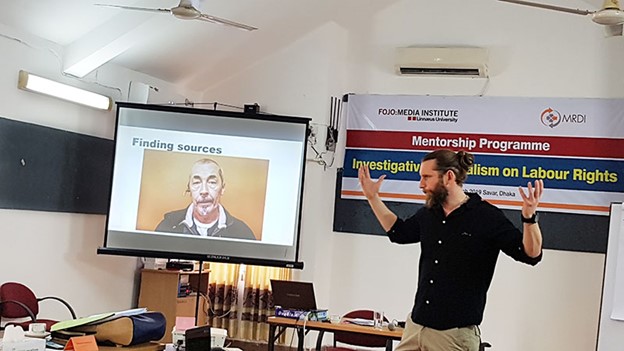
Text by Marcus Derland

Between 80 and 90 percent of all work in Bangladesh is carried out in informal sectors. It creates challenges for investigative journalism on the labor market, but also opportunities.
A large part of Bangladesh’s poor population work in informal sectors. It can be anything from cleaning and household work in someone’s home, day labourers in agriculture or sales in markets and bazaars.
When I was invited to come to Dhaka and train young hungry journalists I accepted right away. The small country with the huge population has many stories waiting to be told. Not least in the labor market.
In Bangladesh, finding exploited workers is not a problem, they are everywhere. But inequalities in the labor market is not only a national concern. It is a global issue and the difficulty is often to track and demand responsibility from companies and business leaders at the top of the chains.
It is not particularly difficult to report on abusive work environments, low wages, long working days and total lack of rights among textile workers, leather workers or construction workers. It is enough to visit some workplaces and interview the victims. But that is not investigative journalism.
In order to be able to call something investigative journalism, some own investigation placing things into a larger context and thereby showing a system error is needed. And one of the most important factors is to demand responsibility.
When I met the young, hungry journalists in Bangladesh, I quickly realised they lacked experience in demanding responsibility. Particular political responsibility.
It is no wonder that I who come from Sweden, who is third in the Reporter without Borders World Free Press Index, think it is obvious to ask critical questions to political leaders. This is a completely different story for journalists in Bangladesh, who are in place 150 (out of a total of 180 countries).
I never have to risk losing my job when I examine political power or links between politics and big business. It is the most important insight I bring along after meeting with my colleagues in Bangladesh. The big difference in our working conditions.


